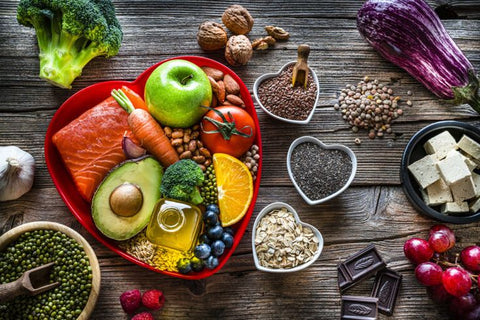What is known about hangovers?
A hangover (or vesalgia) is a feeling of general malaise, dizziness, nausea, gastrointestinal discomfort, a sensation of dry mouth... that occurs after drinking too much alcohol and generally appears a few hours after having stopped drinking alcohol, but sometimes it starts to appear while we are still drinking.
What is no longer so easy to explain is what exactly causes this and why some people suffer more from its effects than others .
Some studies have concluded that there may be a series of metabolic alterations due, among other things, to the generation of certain substances derived from the inflammatory processes, a decrease in blood pH (therefore, alterations in oxygen transport and an increase in lactate and ketone bodies) and also to endocrine changes due to an increase in plasma amounts of hormones such as aldosterone, vasopressin and renin. What's more, there is even a certain response from the immune system.
As for the amounts of alcohol that cause drunkenness and hangovers, experts point out that there is no amount of alcohol that can cause effects because everything depends on each person's metabolic capacity, body weight, body water, etc.

What is vitamin B12?
Cobalamin or vitamin B12 is one of the 8 vitamins of group B and is obtained through food. It is essential for the formation of blood, some proteins and for the normal functioning of both the nervous system in general and the brain in particular. In addition, it promotes the metabolization of amino acids, carbohydrates and fatty acids.
On the other hand, it is a water-soluble vitamin that accumulates in the liver. From there it acts as a coenzyme in different important processes in our body.

What is the relationship between vitamin B12 and alcohol?
Vitamin B12 requires glutathione, which is an antioxidant used by cells to protect them from oxidation. It is synthesized in the liver and, as you age, your body produces less and less of it. This is relevant because, when you drink alcohol, the liver uses glutathione to mitigate the oxidative effect of its processing.
As a result, there is less absorption of this essential vitamin from the B group in the body . In addition, while the liver is metabolizing alcohol, gluconeogenesis or glucose formation in this organ is inhibited, which is essential to control blood sugar levels. If this is not controlled, it will be necessary to administer vitamin B1.
On the other hand, a deficiency of vitamin B12 has been observed in people with a history of alcoholism , since the liver does not function normally. For all the above reasons, it is said that alcohol causes serious harm to your general health.
However, despite this link between cobalamin and hangovers, taking this vitamin is not enough to prevent hangovers. If you want an effective method to avoid hangovers, avoid drinking alcohol in excess.

But don't they say that in the hospital they inject B12 for hangovers?
It is part of popular culture to take vitamin B12 when drinking alcohol . The myth says that it helps eliminate alcohol quickly and that the drinks you drink will be better tolerated. In addition, it is believed that it will prevent you from giving a positive result in a breathalyzer test.
This myth may be derived from the emergency protocol when they receive a patient with alcohol poisoning. Here, again, the myth is that they inject you with vitamin B12 to make you recover, something that is false .
In these types of situations, a 5% glucose serum is applied to prevent hypoglycemia derived from alcohol consumption and an intramuscular cocktail of the vitamin B complex is applied to prevent neurological damage and improve muscular symptoms.
Therefore, it can be inferred that the vitamin complex does not cure a hangover .

The studies we have available today do not show any benefit of this vitamin compared to alcohol.
What can you do about a hangover?
You can deal with a hangover in two different ways: preventing it or treating it the next day . Let's see how to act in both situations:
How can you prevent a hangover?
If you want to prevent dryness without practicing abstinence, drink in moderation. The more you drink, the more likely you are to suffer from it.
Drink water . Alcohol is a diuretic drink that promotes dehydration. The solution is to drink plenty of water. Do this between drinks and don't forget to drink a glass before going to bed.
Eat food before you start drinking . This reduces the time it takes for alcohol to enter the bloodstream, keeping blood alcohol levels low.
Avoid congener-containing drinks . These substances are toxic and responsible for accentuating and worsening a hangover. What are these drinks? Bourbon, tequila, cognac and whiskey. Those low in congeners are so-called white drinks (vodka and gin) and rum.
Get the amount of sleep you need . Not getting enough sleep can make irritability or fatigue worse.
Eat a healthy and nutritious breakfast . After a binge, your blood glucose levels will be at their lowest, so eat a healthy and nutritious breakfast.
What to do if you wake up with a hangover ?
If you have not taken precautions and have drunk too much, what we recommend is:
Drink plenty of water.
Sleep, so that your body gets enough rest.
Drink and eat foods rich in vitamin B and vitamin C.
Avoid junk food.
Shower with warm water.

Although its effects on hangovers have not been proven, Vitamin B12 does help maintain healthy blood cells and neurons, as well as contributing to the production of DNA. But those are not the only benefits , other functions of vitamin B12 are:
- Strengthen the nervous system and improve concentration.
- Ensure the correct metabolization of amino acids and cellular metabolism.
- Provides energy to the body and reduces fatigue.
- It is key to improving muscle gain and recovery of endurance and energy.
Vitamin B12 deficiency can lead to health problems such as anemia, significant weight loss, fatigue, weakness, poor balance and even memory loss. The good news is that a vitamin B12 deficiency can be alleviated with the help of dietary supplements.




Comments (0)
There are no comments for this article. Be the first one to leave a message!